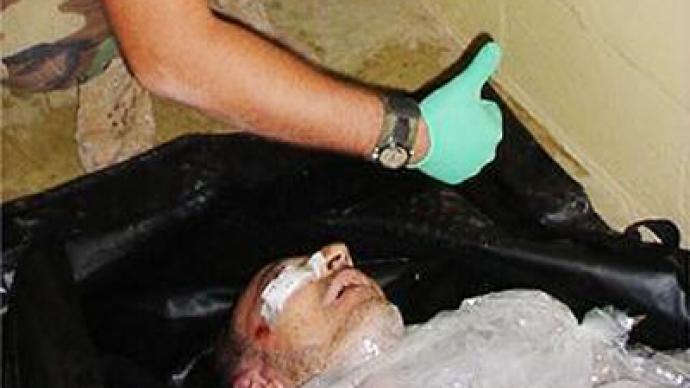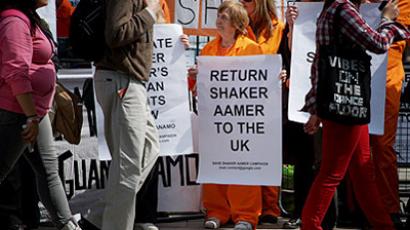Ex-CIA officer being considered a war criminal

It’s no secret that American operations at the Abu Gharib prison in Iraq were, to be kind, horrible.
Revelations of physical, psychological and sexual abuse — as well as evidence of torture and homicide — caused a public outrage back in 2004 when photos from inside the prison were leaked to the press. Academy Award-winning filmmaker Errol Morris chronicled it in his 2008 documentary Standard Operating Procedure, and in the end, eleven soldiers were convicted on charges related to the actions at Abu Gharib.Now seven years after the world got wind of the escapades that American officials were partaking in, a former CIA official that oversaw operations at the prison is finally being investigated for federal war crimes.Steve Stormoen, who has since retired from the government, supervised the so-called “ghosting” program at Abu Gharib where detainees were unlawfully imprisoned and interrogated — yet never accounted for.The laws of war state that prison detainees must be handed over to the US military for all interrogations. Under Stormoen’s leadership, however, the CIA conducted their own interrogations which, in some cases, resulted in death.Not only did the CIA carry out illegal interrogations, but the ghosting program saw men being imprisoned without ever officially being accounted for in the Army’s records.Now federal officials are considering Stormoen’s role as perhaps worthy of prosecution.In one infamous incident, prisoner Manadel al-Jamadi was ghosted by the CIA. Agency officials handcuffed and chained al-Jamadi in a shower stall with a sandbag over his head. They never told the Army they had him in custody and never asked for permission to interrogate him — which they did while he was unjustly bound in the bathing facility. An hour after officials began their interrogation, al-Jamadi was dead.This is just one incident in which, had the CIA followed protocol, lives could have been saved and human rights preserved.Federal prosecutors are now considering if the al-Jamadi incident constitutes a war crime. Stormoen processed the prisoner into Abu Gharib but wasn’t present during his execution.Stormoen was present for videoconferences with CIA headquarters, however, in which he and others repeatedly pleaded for permission to use harsher techniques which were never authorized, according to some witnesses. Despite a lack of approval, Stormoen, who oversaw the interrogation program, allowed his men to carry on.Former and current Abu Gharib affiliates are currently speaking to prosecutors and have recently began discussing the case with the press under the condition of anonymity.While the CIA is allowed to conduct interrogations of terrorism suspects in some prisons overseas, that authorization under the George W Bush administration did not apply to Iraq. That meant that actions at Abu Gharib had to be governed by the Geneva Convention rules of war, which say that prisoners cannot be treated with cruelty, must be properly documented and have access to medical attention.Investigators in the case think that the ghosting program carried out by Stormoen shows a disregard for the rules of war as CIA officials disregarded sanctions outlined in the Geneva Convention. So far two witnesses claim they have spoken to a grand jury at a Virginia courthouse regarding Stormoen’s rules at Abu Gharib, reports The Associated Press.The AP adds that there is no statute of limitations on war crimes if the case involves a death.Speaking to RT on Wednesday, Human Right Watch's counterterrorism activist Laura Pitter says that her group is calling on President Obama to investigate the use of torture by several senior level officials involved in the last Bush administration. Even with some recorded incidents years in the past, Pitter says that "it is just as important to make sure that the message doesn’t get lost."Pitter adds that investigations of incidents carried out by CIA officials at prisons like Abu Gharib show that, even when officers did what went beyond what they were authorized to do, "the problem with what was authorized is that it was illegal.""Looking beyond the authorization was never sufficient," says Pitter. She stresses to RT that the US is required not just to investigate these allegations of abuse, but to make sure they are prohibited in full.














